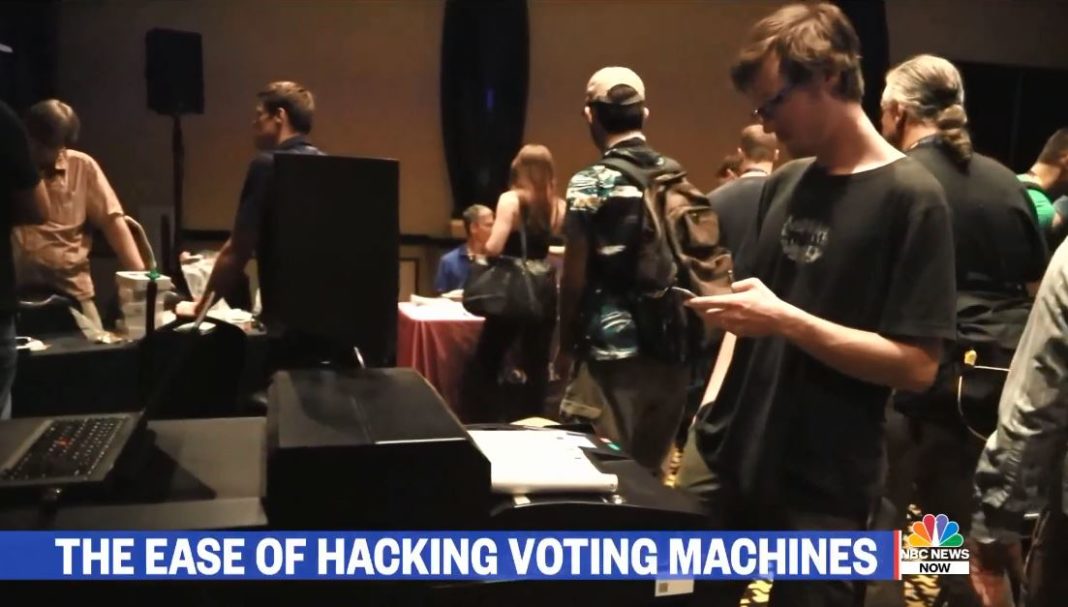It wasn’t that long ago that mainstream media and Democrats were concerned about voting machines.
By not that long ago, we mean Aug. 12, 2019.
NBC News did a segment titled “how hackers can target voting machines.”
There was something called the “Voting Villiage.”
“In its third year, they had assembled some of the most common voting machines in the country,” said Jacob Ward, NBC’s technology correspondent. “Both systems that are on the front end that you and I use to actually register our vote and the back end, tabulators that you would feed a paper ballot into or that oversee a system.”
Ward said he assumed the machines were provided by manufacturers.
“But no, it turns out there’s an extremely hostile relationship there,” he said.
The organizers found the machines on eBay.
“It turns out that anybody can buy some of the most common machines in use on eBay,” he said. “What was really alarming was when you see these hackers, and these are people who have never seen these machines before, have no practice on them for the most part, come in and engage them. They immediately get into the guts of them. Beyond that, we were seeing Dominion’s ImageCast system.”
That’s a line of tabulators that paper ballots are fed into.
Georgia was mentioned specifically as a state spending over $100 million on a contract with Dominion to provide ImageCast hardware.
“Here these kids who were who had opened it up,” Ward said. “They said, ‘Look, you can pop the front off of it and here’s a port you can get into, that’s easy.’ All kinds of stuff that you could certainly do within six minutes behind a curtain, much less if you had extra time because any of these were connected to the web as we discovered a couple days before, so many of them are.”
Ward said the front of each machine had a little Post It that said what had been found out by the hackers.
“It turns out that the same admin password applies to multiple machines across the room and those machines were created in the 2000s which means that they were created so you can’t change that admin password. They’re just locked for all time in that way,” Ward said.
“The combination of seeing the incredible vulnerabilities that we saw on display in real-time at this event, and the lack of institutional action around the security of the vote — all of that made for an extremely alarming weekend.”
Less than one year ago, Senators Elizabeth Warren, Ron Wyden and Amy Klobuchar joined Rep. Mark Pocan (D-WI) in announcing they had opened an investigation into the “vulnerabilities and shortcomings of election technology industry with ties to private equity.”
Warren, Wyden, Klobuchar and Pocan wrote a letter that stated, “In 2018 alone, ‘voters in South Carolina (were) reporting machines that switched their votes after they’d inputted them, scanners (were) rejecting paper ballots in Missouri, and busted machines (were) causing long lines in Indiana.’ In addition, researchers recently uncovered previously undisclosed vulnerabilities in ‘nearly three dozen backend election systems in 10 states.’ And, just this year, after the Democratic candidate’s electronic tally showed he received an improbable 164 votes out of 55,000 cast in a Pennsylvania state judicial election in 2019, the county’s Republican Chairwoman said, ‘nothing went right on Election Day. Everything went wrong. That’s a problem.’ These problems threaten the integrity of our elections and demonstrate the importance of election systems that are strong, durable and not vulnerable to attack.”

















